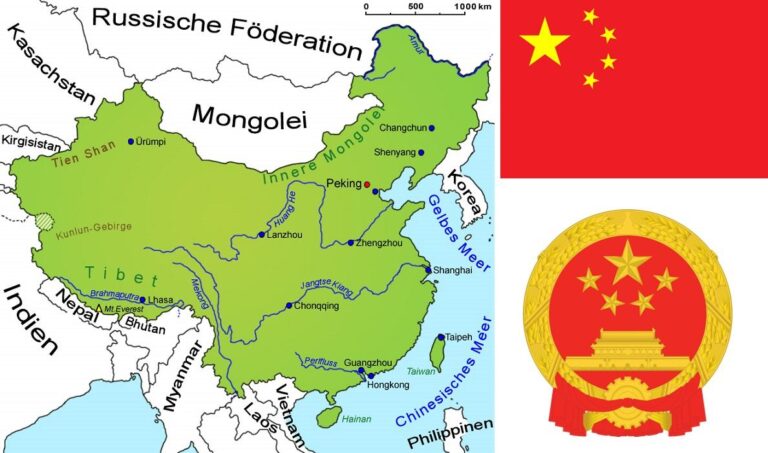China and the United States have officially commenced high-level economic and trade negotiations in Madrid, marking a significant step toward easing tensions between the world’s two largest economies. The talks, aimed at addressing longstanding disputes and exploring avenues for enhanced cooperation, come amid ongoing challenges in global trade and supply chains. Officials from both sides emphasized the importance of dialogue and mutual respect as they work to rebuild trust and stabilize bilateral economic relations.
China and US Reignite Dialogue to Address Trade Imbalances and Market Access
High-level representatives from China and the United States convened in Madrid to resume critical conversations focusing on resolving persistent trade imbalances and enhancing market accessibility. Both sides emphasized their commitment to fostering a more balanced economic relationship by addressing barriers that have long hindered cross-border commerce. Key discussion points centered on tariff reductions, investment protections, and streamlined customs procedures designed to stimulate bilateral trade growth.
Among the agenda items:
- Review of existing tariff schedules with the goal of mutual reductions
- Improvement in regulatory transparency to facilitate smoother market entry
- Measures to protect intellectual property rights and promote technology exchange
The talks aim not only to resolve current frictions but also to establish a framework for ongoing dialogue that can adapt to future economic challenges. Observers noted that success in these negotiations could significantly impact global supply chains and economic stability.
| Topic | China’s Proposal | US Response |
|---|---|---|
| Tariff Reductions | Phased elimination over 3 years | Conditional reciprocation |
| Market Access | Opening financial sectors | Enhanced compliance checks |
| Intellectual Property | Stricter enforcement laws | Joint oversight mechanisms |
Focus on Technology and Intellectual Property Rights Dominate Negotiations
As economic tensions persist, the spotlight remains firmly on the complex issues of technology transfer and intellectual property rights throughout the ongoing dialogue. Both China and the United States have underscored their commitment to resolving disputes centered on safeguarding innovations while fostering fair competition in global markets. Key points of debate include:
- Protection of proprietary technologies from unauthorized use or forced transfer
- Enhancing cross-border cooperation for research and development initiatives
- Strengthening enforcement mechanisms against IP infringements
- Addressing market access barriers related to technology sectors
| Focus Area | US Position | China Position |
|---|---|---|
| Technology Transfer | Eliminate forced transfer requirements | Promote voluntary, bilateral agreements |
| IP Protection | Raise penalties for counterfeiting | Improve legal frameworks and enforcement |
| Market Access | Remove restrictions on foreign tech firms | Maintain regulatory controls with transparency |
The negotiations aim to chart a path that balances innovation incentives with open trade principles, reflecting broader geopolitical shifts influencing the global tech landscape. Both parties appear cautiously optimistic but remain vigilant, recognizing that technology and IP rights are not only economic concerns but also key strategic assets.
Experts Urge Enhanced Cooperation for Sustainable Economic Growth and Stability
During the recent talks held in Madrid, economic experts from both nations emphasized the critical need for strengthened collaboration to bolster global economic recovery. They identified shared challenges-ranging from supply chain disruptions to inflation pressures-and underscored that unified strategies could foster greater resilience and growth. Participants highlighted that pragmatic dialogue and transparent communication must serve as the foundation for bilateral trade relations moving forward.
Key areas pinpointed for enhanced cooperation included:
- Innovation and technology exchange to drive sustainable development
- Environmental protection initiatives aimed at reducing carbon footprints
- Market access improvement to facilitate smoother trade flows
- Addressing regulatory barriers through harmonized policies
| Cooperation Area | Expected Outcome |
|---|---|
| Technology & Innovation | Enhanced R&D collaboration |
| Environmental Strategies | Lower emissions & green growth |
| Trade Facilitation | Reduced tariffs & improved access |
| Regulatory Alignment | Smoother cross-border processes |
To Wrap It Up
As China and the United States commence their latest round of economic and trade talks in Madrid, both sides express cautious optimism about bridging differences amid ongoing global uncertainties. Observers will be closely watching the outcomes of these discussions, which hold significant implications for bilateral relations and the broader international economic landscape. The coming days may well set the tone for future cooperation or further challenges between the world’s two largest economies.




